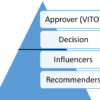In today’s digital age, where emails, social media, and automated marketing dominate the landscape, cold calls often receive a bad rap. Many people view them as intrusive, outdated, and ineffective. However, this perception overlooks the significant value and impact that well-executed cold calls can have in the world of sales.
The Misconceptions about Cold Calls
The negative experiences that many associate with cold calls usually stem from poorly executed attempts. These are calls that lack personalization, research, or relevance to the recipient’s current needs. When a sales representative pitches a product or service without understanding the recipient’s context or needs, it not only irritates the potential customer but also tarnishes the brand’s image.
However, when done correctly, cold calls can be a powerful tool in a salesperson’s arsenal. Here’s why:
Direct Human Connection
One of the most compelling arguments for cold calls is the direct human connection they facilitate. Unlike emails or social media messages, a phone call allows for immediate, real-time interaction. This can be crucial for building rapport, understanding the customer’s needs, and addressing concerns on the spot. A well-prepared salesperson can use this opportunity to create a memorable, positive impression.
Immediate Feedback and Adaptation
Cold calls provide instant feedback. A skilled salesperson can gauge the interest and reactions of the prospect, allowing them to adapt their pitch dynamically. This immediate exchange can lead to a more engaging and persuasive conversation, increasing the likelihood of a successful outcome.
Breaking Through the Noise
Inboxes are flooded with emails, and social media feeds are saturated with posts. In such a crowded space, cold calls can serve as a differentiator. A well-timed, thoughtful phone call can cut through the digital noise and capture the prospect’s attention in a way that an email might not.
Building Trust and Credibility
While cold calls are often perceived as annoying, when executed with empathy and professionalism, they can build trust and credibility. A personalized approach that demonstrates an understanding of the prospect’s challenges and offers a relevant solution can position the salesperson as a trusted advisor rather than a pushy vendor.
Effective Cold Call Strategies
To harness the power of cold calls, it’s essential to adopt strategies that maximize their effectiveness and minimize the potential for irritation:
1. Research and Personalization: Before making a call, research the prospect thoroughly. Understand their business, current challenges, and potential needs. Personalize your pitch to show that you’ve done your homework.
2. Value Proposition: Clearly articulate the value of your product or service. Focus on how it can solve the prospect’s specific problems or improve their business.
3. Respectful Timing: Choose an appropriate time to call. Avoid early mornings, late evenings, or weekends unless you know it’s a suitable time for the prospect.
4. Empathy and Listening: Approach the call with empathy. Listen more than you speak. Understand the prospect’s pain points and tailor your conversation accordingly.
5. Follow-Up: If the prospect is not interested or the timing isn’t right, respect their response. Follow up with an email summarizing your conversation and offering additional resources.
While unsolicited cold calls can indeed be off-putting, dismissing them entirely would be a mistake. When executed thoughtfully and strategically, cold calls can be an effective way to connect with prospects, build relationships, and drive sales. T he key lies in shifting from a generic, one-size-fits-all approach to a personalized, empathetic, and value-driven strategy. Embracing these principles can transform cold calling from a dreaded task into a powerful sales tool.












